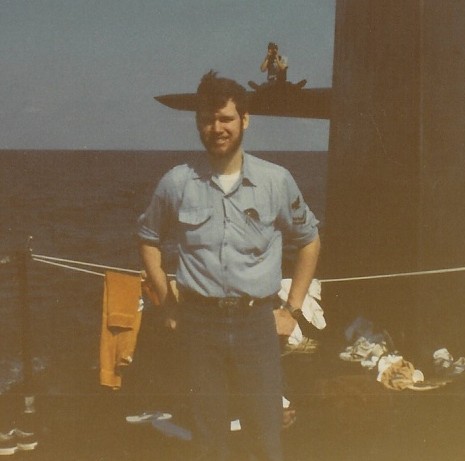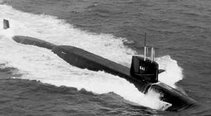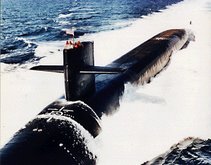The UN Law of the Sea treaty or UNCLOS has never been ratified by the US Congress but supporters are bringing it up for another try. The treaty started its existence in the 1970s and has had a number of agreements added to it since its inception. The Law of the Sea treaty covers a broad range of issues such as navigation, fishing rights, seabed mining and protection of the marine environment. President Ronald Reagan refused to sign the treaty in 1982 primarily over the risk it posed to our national sovereignty and arguments over seabed mining.
Recently the Bush administration through Secretary of State Condoleeza Rice statements voiced its support for a new effort to ratify the treaty. Additionally Senator Richard Lugar, (R-Ind) member of the senate Foreign Relations Committee, has also become a vocal proponent for the Law of the sea Treaty. But there are some conservatives in congress that feel that despite a 1994 amendment negotiated by the Bush senior and Clinton administrations the treaty is still flawed.
Treaty's impact to Submarine operations
Will UNCLOS impact US submarine operations? As with much of the treaty it depends on who interprets the specific article (pro here or con there )and its reference to other previsions in the treaty. The specific sections of concern are SECTION 3. INNOCENT PASSAGE IN THE TERRITORIAL SEA
Article19 - Meaning of innocent passage
Passage is innocent so long as it is not prejudicial to the peace, good order or security of the coastal State. Such passage shall take place in conformity with this Convention and with other rules of international law.
Article20 - Submarines and other underwater vehicles
In the territorial sea, submarines and other underwater vehicles are required to navigate on the surface and to show their flag.
Essentially it says that submarines must travel on the surface and not engage in any act aimed at collecting information to the prejudice of the defense or security of the coastal State. Sounds like no "Blind Mans Bluff" kind of stuff to me. Territorial waters is basically a 12 mile limit with a broader baseline definition for archipelagoes. 12 miles may not sound like much, but there are a number of straits you may want to sneak in to and out of. Here's a few of the 100 (UN estimated) straits possibly effected by the territorial sea rule:
- Strait of Gibalaiter - 8 miles wide (Entrance to the Med)
- Strait of Malacca - 20 miles wide (A main passage to and from the Pacific and Indian Oceans)
- Strait of Hormuz - 14 miles wide (Oil, Oil, Oil transit in and out of Persian gulf )
- Bab el Mandab - 14 wiles wide (Indian Ocean to Red sea transit point)
The Navy is still in favor of the treaty though, with the current CNO Adm. Vern Clark supporting the treaty's ratification. Still, Admiral Michael G. Mullen, the vice chief of naval operations and in line to replace Clark, has indicated that the Law of the Sea tribunal could rule adversely to US interests thereby harming our "operational planning and activities, and our security".
Other Problems
I see some other issues (here and here) besides the articles 19 and 20, so maybe I'll look a little more into this one.









4 comments:
The most attractive target for a free lunch on the globe is the U.S.A. The thugs at the U.N. wish to disadvantage our defensive capability. Impairing our covert intelligence gathering would be a good start. The U.N. is on our shores for whose convenience? By rights, it should be moved to Iceland (actually, Atlantis better suits). Thank you for this informative posting. It deserves monitoring by our capable Ambassador nominee.
I haven't reviewed it, but looks like the wording is similar to current Law of the Sea, including the requirement for submarines to conduct innocent passage surfaced and showing the flag. As for base-lines, straits and archipelagoes, it is worth noting that except for a few archipelagoes the US generally does not recognize delared baselines for the purpose of defining territorial seas. Also, unless this treaty specifically voids the existing rules of archipelagic sea lane passage and transit passage, submerged transit may still be conducted under those rules.
I have no problem with much of the Law of the Sea treaty when it comes to reinforcing currently accepted standards of navigation and territorial boundaries. But what does concern me is that UNCLOS seems to broaden what is already accepted international rules to a point where it becomes ambiguous or contradictory. For example the treaty says the all ships have the right of innocent passage in territorial waters but Article 23 states:
Foreign nuclear-powered ships and ships carrying nuclear or other inherently dangerous or noxious substances shall, when exercising the right of innocent passage through the territorial sea, carry documents and observe special precautionary measures established for such ships by international agreements.
International agreements between who and what if the US is not a party to that agreement. If Spain and Morocco create a nuclear weapons free zone in their territorial waters and word it as a precautionary measure, would that mean any warship capable of carrying nuclear weapons could be inspected for their non-existence when passing through the Straights of Gibraltar? What documents is the ship to carry and when are they reviewed by the coastal state?
The other major issue I have is the establishment of the “International Tribunal for the Law of the Sea”. This Tribunal would exercise judgments over disputes concerning the Law of the Sea treaty. With the state of Anti-American feelings within many countries and the resentment or fear of American sea power, what kind of judgments would the US receive from a judge who is French national or someone who is from China?
Although parts of UNCLOS contain accepted international law observed by the US the treaty as a whole looks to me like a power grab by the UN bureaucrats to regulate and thereby control two thirds of the earth’s surface.
Who knows where to download XRumer 5.0 Palladium?
Help, please. All recommend this program to effectively advertise on the Internet, this is the best program!
Post a Comment